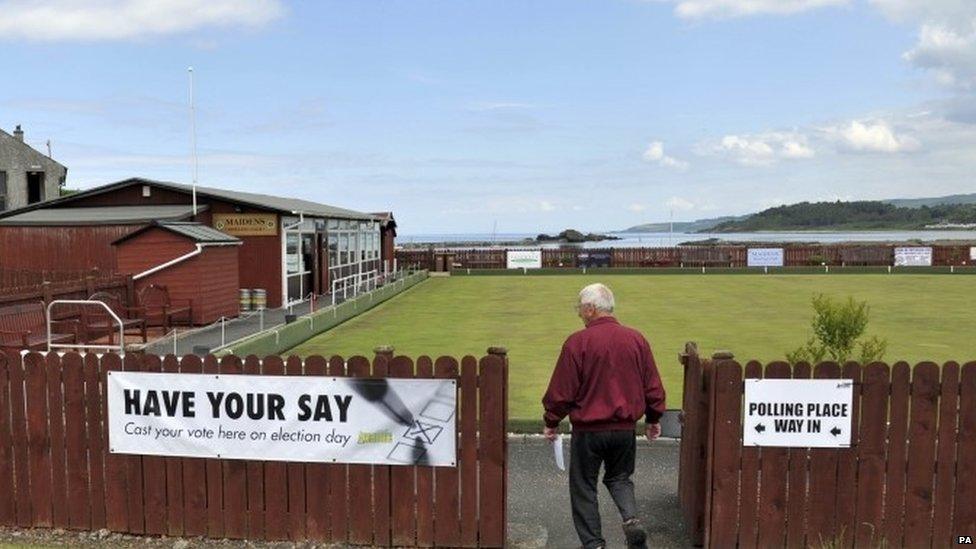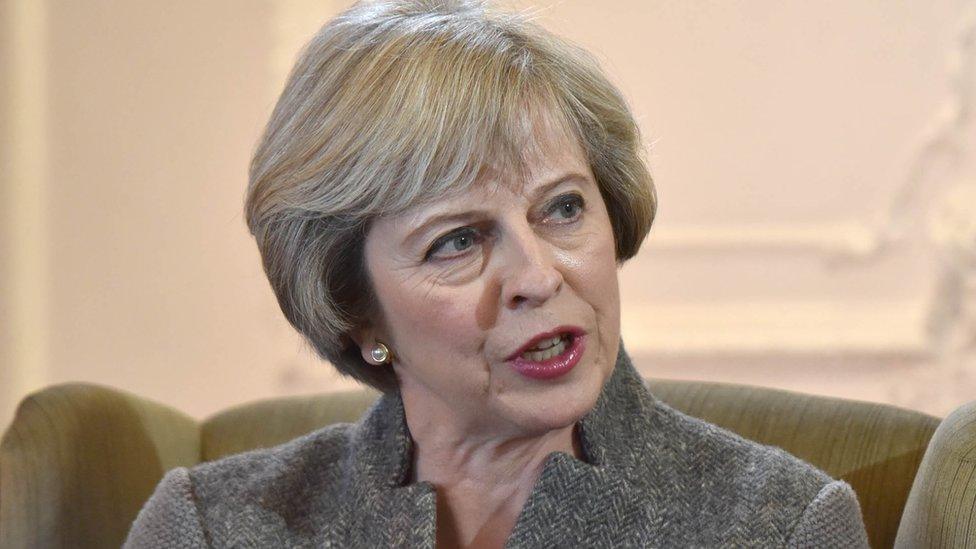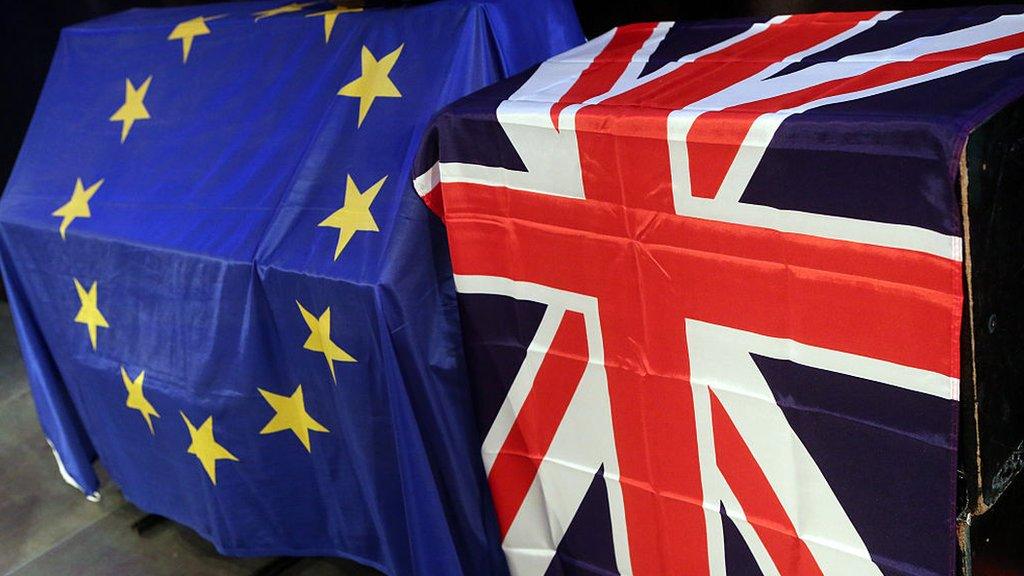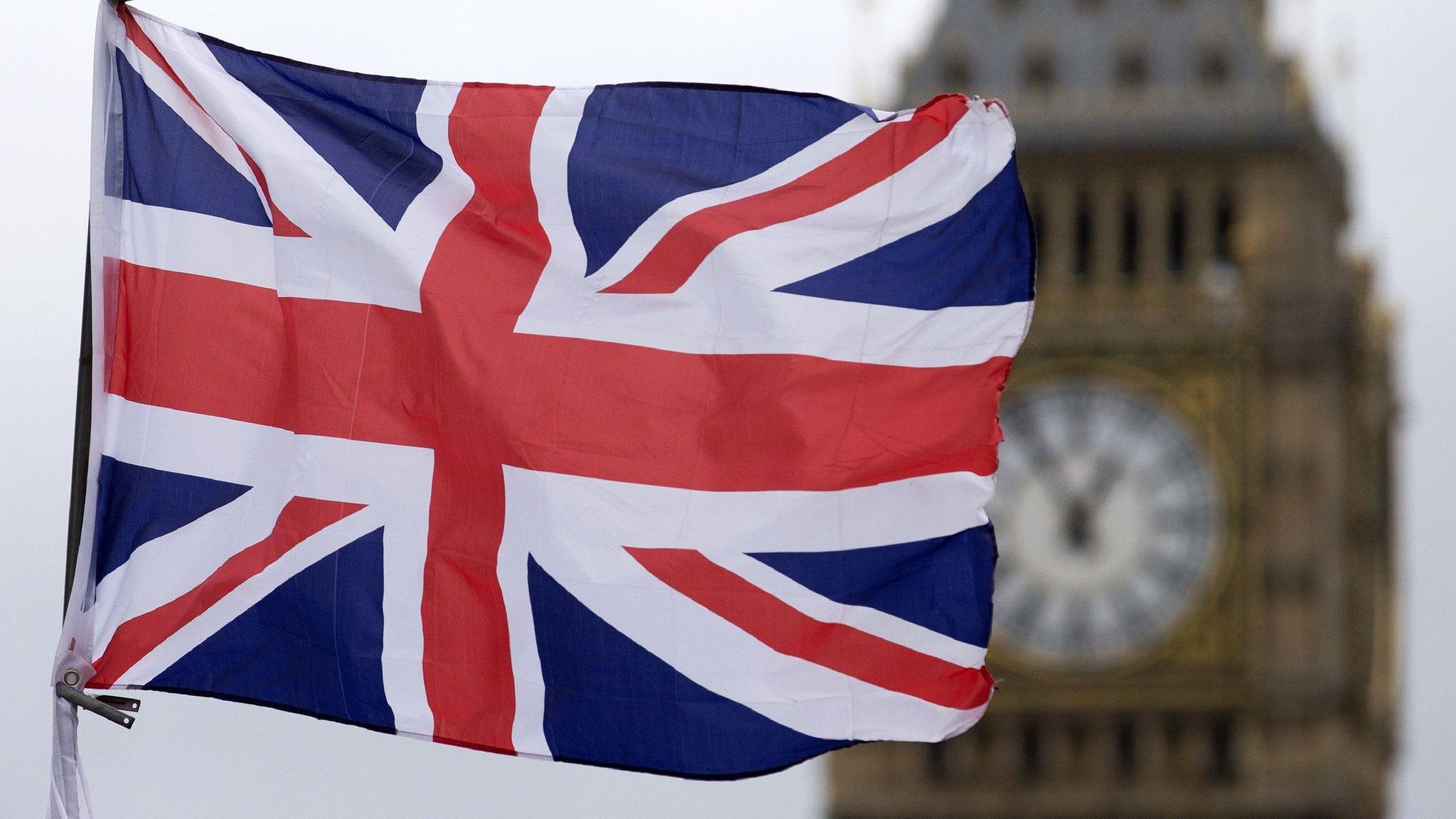Brexit: Ignoring Leave vote would be outrage MPs told
- Published
Tory MP: 'Red-blooded democrats' must accept EU vote
Ignoring the outcome of the EU referendum would lead to public outrage, MPs have been told as they debated the future of Brexit.
Ex-Tory minister John Penrose said any attempt to bypass the Leave vote would be "corrosive" to public trust.
But Labour MP David Lammy said the public had been "lied to" and a further vote on the Brexit deal was the only way out of the "constitutional crisis".
A public petition urging a new EU vote has attracted four million signatures.
The debate came as Brexit Secretary David Davis told MPs leaving the EU would offer "new freedoms and horizons" but the government would take time to get it right.
As Parliament returned from the summer recess, and with Theresa May under pressure at the G20 summit to give details of the UK's plan for life outside the EU, research for the BBC suggests mixed feelings about what impact people think Brexit will have on them.
A poll for BBC Radio 5 live, conducted by the polling firm ComRes, suggests 62% of the 1,032 British adults canvassed say they are positive about Britain's future post-Brexit.
On the other hand, 26% of those spoken to have considered leaving the UK and moving elsewhere - including 43% of 18-34 year olds.
'Hijacked'
MPs are obliged to consider any petition which receives more than 100,000 signatures for debate in Parliament.
The EU petition, external urging a re-run of the vote has now attracted 4.14 million signatures - more than any other in the past five years - and was debated in Westminster Hall.
MPs clash during EU referendum debate
SNP MP Ian Blackford said June's referendum vote was flawed because of a lack of detail on the issues and the fact 16 and 17 year olds and EU citizens were excluded.
While not arguing that the outcome of the referendum should be "overriden", Mr Blackford said he was making the point that the Scottish people had voted to stay in the EU and their views could not now be ignored - adding "remain should mean remain".
"Brexiteers wanted out of Europe but they did not have a plan for the day after or the days after that," he said.
Green Party leader Caroline Lucas said a re-run of the referendum would be an affront to democracy but there was a case for a further vote when the time came on the terms of the exit deal that the UK government negotiated - a point echoed by Mr Lammy.
'Marching orders'
But former Conservative minister John Penrose said the UK public had voiced their opinion and to have another vote would be "corrosive" to public trust and lead to "absolute shattering" howls of outrage from the electorate.
"We have been given our marching orders. Brexit must mean Brexit. It is up to every red-blooded democrat to accept the verdict...and pull together to deliver it."
Although the petition was launched in May, interest in it intensified in the 48 hours after the historic vote on 23 June - with 3.2 million people having signed it by 26 June.

More than 33.5 million people voted in the EU referendum
But the man who started the petition, Oliver Healey, has claimed that it has been "hijacked" by Remain supporters.
Mr Healey, an English Democrat activist and Leave supporter, has disassociated himself from the petition saying he started it in the run-up to the vote because he was worried that the UK would opt to remain in the EU by a narrow margin on a low turnout.
As it turned out, the Leave campaign won the referendum by a margin of 51.9% to 48.1% while turnout was a higher than anticipated 72%.
'Democratic exercise'
The House of Commons petitions committee subsequently launched an investigation amid claims some of the names on the online document were fraudulent.
Monday's debate will not alter the outcome of the referendum since the rules by which it was held were agreed by Parliament and cannot be changed retrospectively..
The Lib Dems, SNP and some Labour MPs have called for the details of the UK's eventual settlement for leaving the EU to be ratified by the British people in the form of a second referendum but the government has ruled this out.
In a statement to Parliament on progress made over the summer, Mr Davis, one of the key figures in the cabinet tasked with formulating a strategy for the UK's negotiations with the rest of the EU, argued that the UK should set its sights much higher than just "making the best of a bad job".
"It is about seizing the huge and exciting opportunities that will flow from a new place for Britain in the world. There will be new freedoms, new opportunities, new horizons for this great country."
- Published4 September 2016

- Published28 March 2017

- Published26 June 2016
